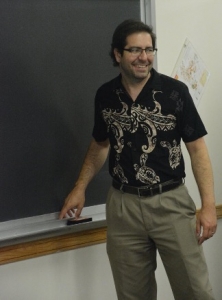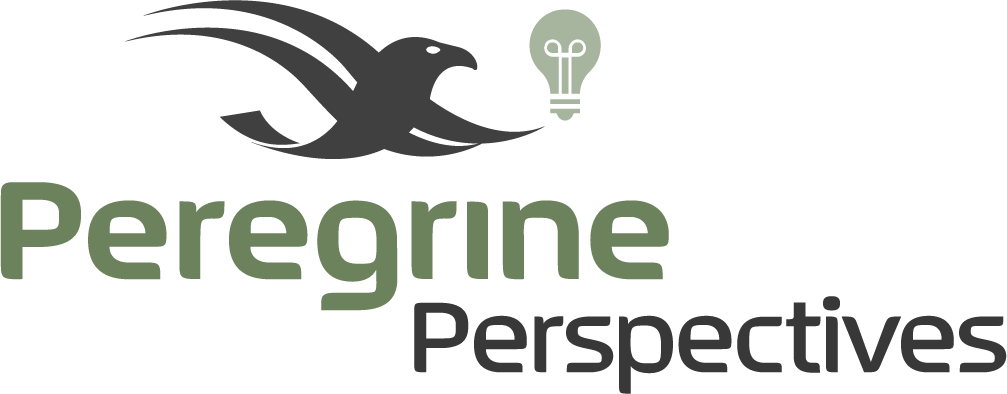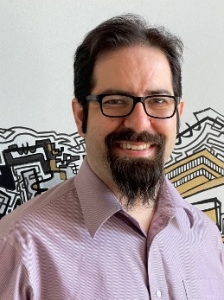From Academia to Agency Life: Finding Value in a New Role
By: Sean D’Evelyn, PhD
Health Economist
Peregrine Market Access
April 2022—Next month marks one year since I left academia to join Peregrine Market Access as a health economist. As someone who places great value on education at all levels, I was a little nervous to leave the classroom after spending the past 10 years teaching college students.
Was I making the right choice, I asked myself? Would I bring the same value to the world by working in the private sector that I did by teaching? Would I be able to adjust to the differences in lifestyle required in that new world?
Thankfully, I am very pleased with my transition to pharmaceutical and biotech market access. I would do it again in a heartbeat, because at Peregrine, adding value to medical products can dramatically improve lives.
A New Pace
The most notable difference between academia and industry life is the pacing. As a professor, much of your timing is measured in semesters. You plan your schedule months at a time and deviate relatively little from week-to-week. This has some obvious benefits, but it also means that your projects typically take a long time and considerable focus to complete. So self-motivation and diligence are of utmost importance.
By contrast, the pace is much faster in the market access industry. New projects arrive daily or weekly. Many of these are unanticipated and require a quick turnaround. As a result, I often cannot accurately schedule three days ahead of time, much less three months.
The furious pace can be exhausting at times—yet also exhilarating. Receiving instantaneous feedback is enjoyable, so processes can quickly and repeatedly be improved. That has fueled a huge increase in overall productivity, plus a sense of satisfaction from continually learning.
Transferrable Skills
For those who have not had the pleasure of working in both worlds, it might be surprising just how many similarities there are between the public and private sector. Many of the skills honed as a professor turn out to be invaluable in industry.
First, effective teaching requires that you connect each new piece of information to a larger story, so tapping into this skill is part of my role at Peregrine. When we can connect our tasks to a clear objective (a clear “why”), the right path becomes clearer.
Second, effective teaching requires that you learn to communicate complicated concepts as clearly and
At Peregrine, the same concept applies. Our work for clients hinges on effectively translating complicated information into elegant, easy-to-understand communications. Thankfully, I can collaborate with Peregrine’s talented creative team to help bring visual elements to life.
Third, effective teaching requires that you understand and empathize with your audience. This helps when interacting with clients and mentoring the younger generation of team members. Shepherding the growth of a few dozen coworkers is much easier than developing an entire classrooms of students.
Valuable Contributions
In my new role as a private-sector health economist, the skills that were sharpened as an economist have enhanced the offerings at Peregrine. One product that I have helped is our market segmentation. The applied statistics and data science skills that are necessary for academic economists have also enabled more precise targeting for our clients.
Using combinations of data sets and select machine learning algorithms, the big questions can be answered: How should scare resources be used most effectively? Which tactic should be used with which target? What precisely should be said where?
Adding value to Peregrine’s digital modeling offering, especially with the access decision models, has been gratifying. Many companies create simple budget impact models, to help understand how adding a drug to their formulary will impact their bottom line. Unfortunately, these types of models are often woefully inadequate at pinpointing the true value of such decisions.
With my academic roots, though, I take a more holistic approach to such models. All of the impacts that a client may care about when different decisions are made are carefully reviewed. Our team then builds visually-appealing interactive tools, to help formulary decision makers feel confident about what the true impacts would be if they accepted our recommended actions.
We accomplish this by including as many customizable fields as possible, to more closely reflect the formulary decision maker’s particular situation. We also transparently flag any built-in assumptions. With these decision models at their disposal, client account managers are then able to laser-target their messaging to their audience(s).
A Meaningful Mission
Despite the concerns I had going in, I feel confident in the tremendous value I can create in my current role. I am helping more people gain access to the medicines, diagnostics, and devices they need, so they have healthier and more fulfilling lives.
There are still problems with the American healthcare system, but Peregrine has a vision of transforming the way that healthcare is valued. It will be a long and slow process, but we can help bring the country one step closer to that goal.
Editor’s Note: Prior to joining Peregrine Market Access, Sean D’Evelyn, PhD, spent 10 years teaching economics at Loyola Marymount University in Los Angeles, California, and Skidmore College in Saratoga Springs, New York. He received a bachelor’s degree in economics, political science, and Asian studies at St. Olaf College in Northfield, Minnesota, and a doctoral degree in economics from the University of Hawaii at Manoa. Learn more about the work Sean and the Peregrine team performs to help clients better define and communicate the value of treatments and diagnostics.


